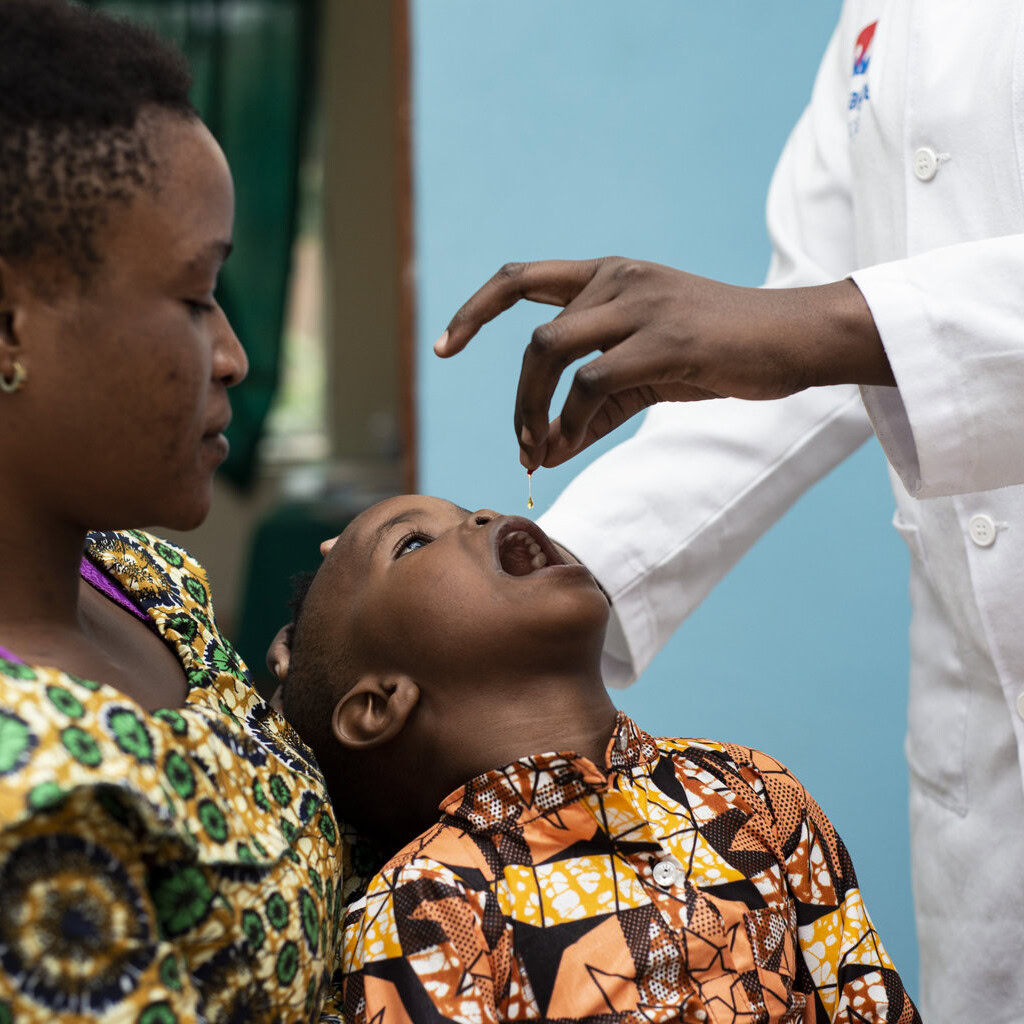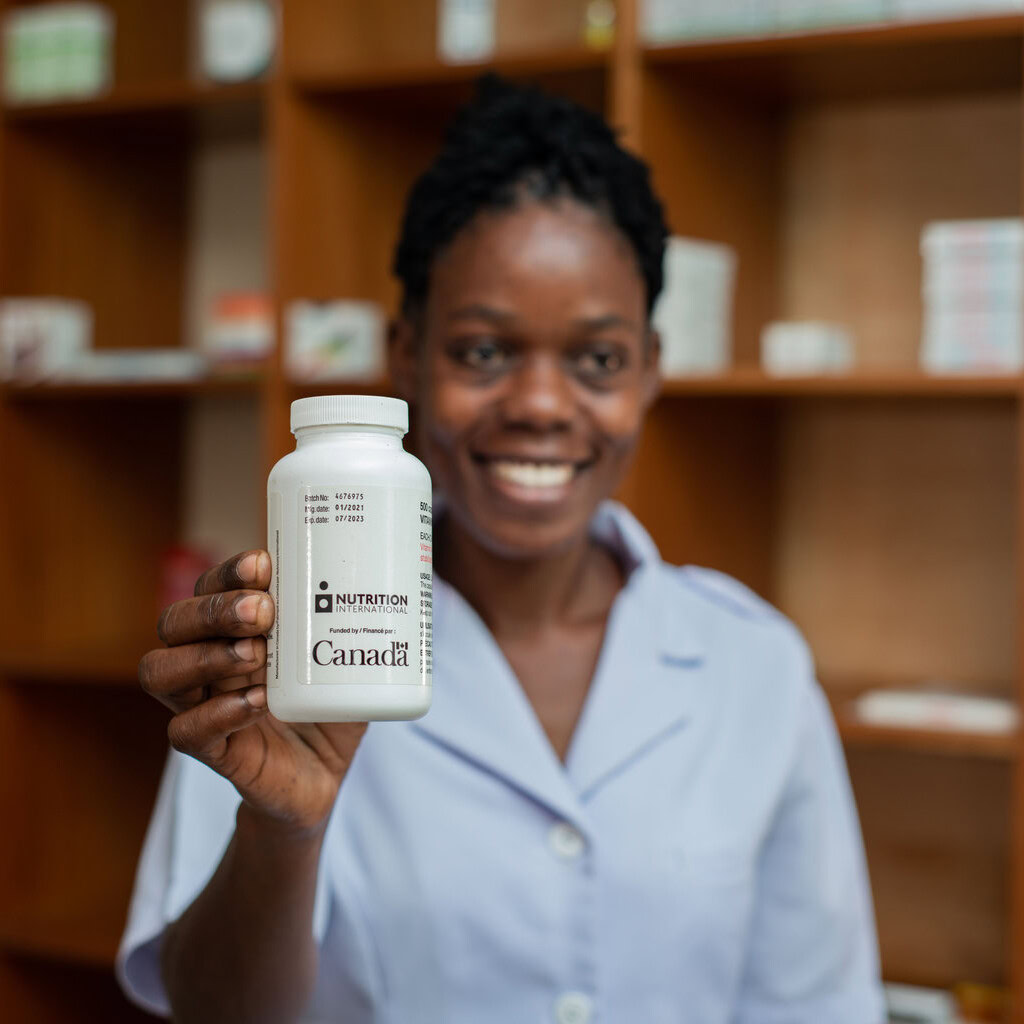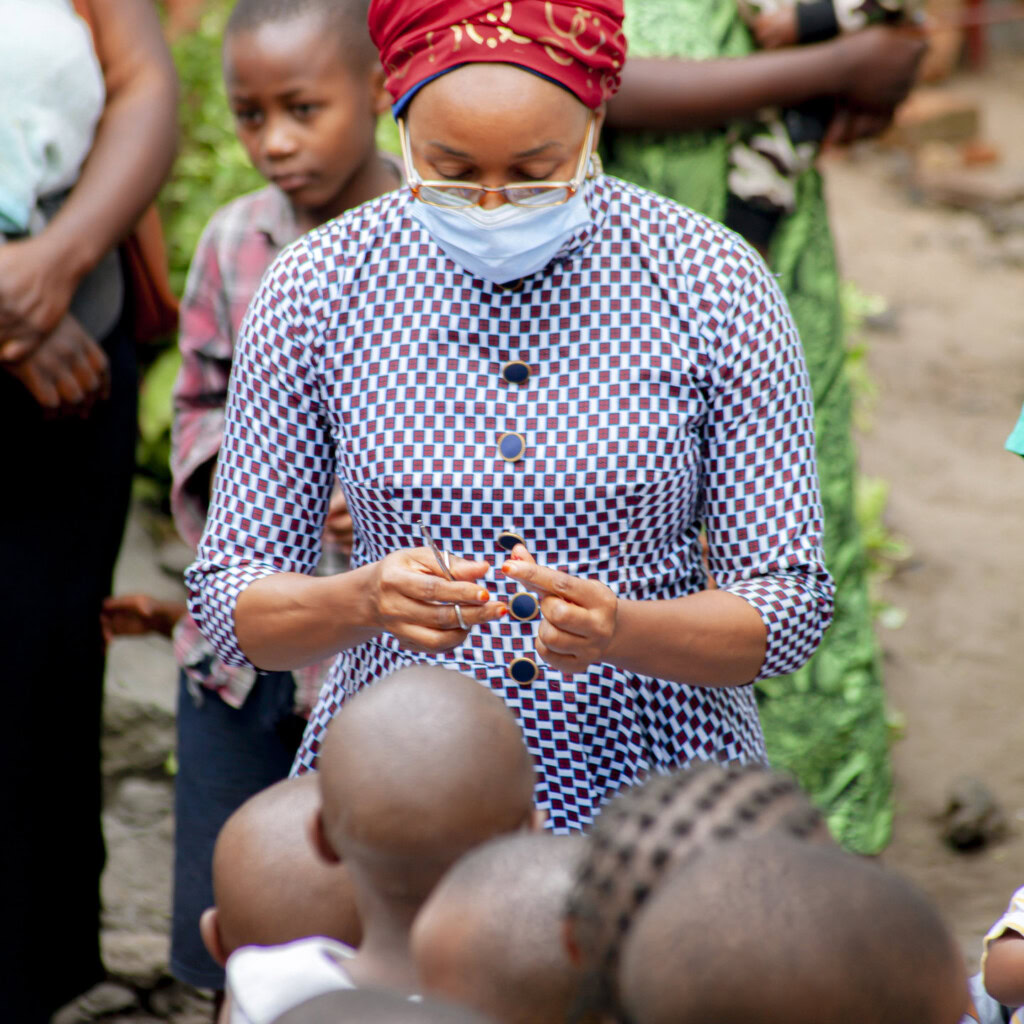Despite notable progress, vitamin A deficiency (VAD) remains a pressing global health problem, particularly in sub-Saharan African and South Asia, where prevalence rates are 48% and 44%, respectively. In areas where VAD is a public health concern, VAS for children aged 6-49 months has been shown to reduce all-cause mortality by up to 12%.
Last year, we continued to support countries to deliver VAS through both the routine health system and biannual events, such as Child Health Days or integrated immunization campaigns. We also helped develop tailored outreach strategies to overcome barriers to reaching children under five in the most remote areas. In Bangladesh, the government identified 58 sub-districts and 714 wards across the country as hard-to-reach. With Nutrition International’s support, more than 134,000 children were reached with VAS through targeted outreach efforts in these areas.
In Nigeria, we continued to leverage data to improve the quality of VAS campaign delivery by conducting post-event coverage surveys (PECS). These surveys serve as an objective tool to validate administrative coverage, assess program quality and identify barriers and facilitators to VAS delivery, all while applying a gender lens. Following the second semester of the Maternal, Newborn and Child Health Week campaign (MNCHW) in Enugu and Cross River states, we commissioned a PECS to gather insights. The findings were shared with state governments to refine MNCHW planning and implementation, including strategies to better engage men in supporting caregivers.


